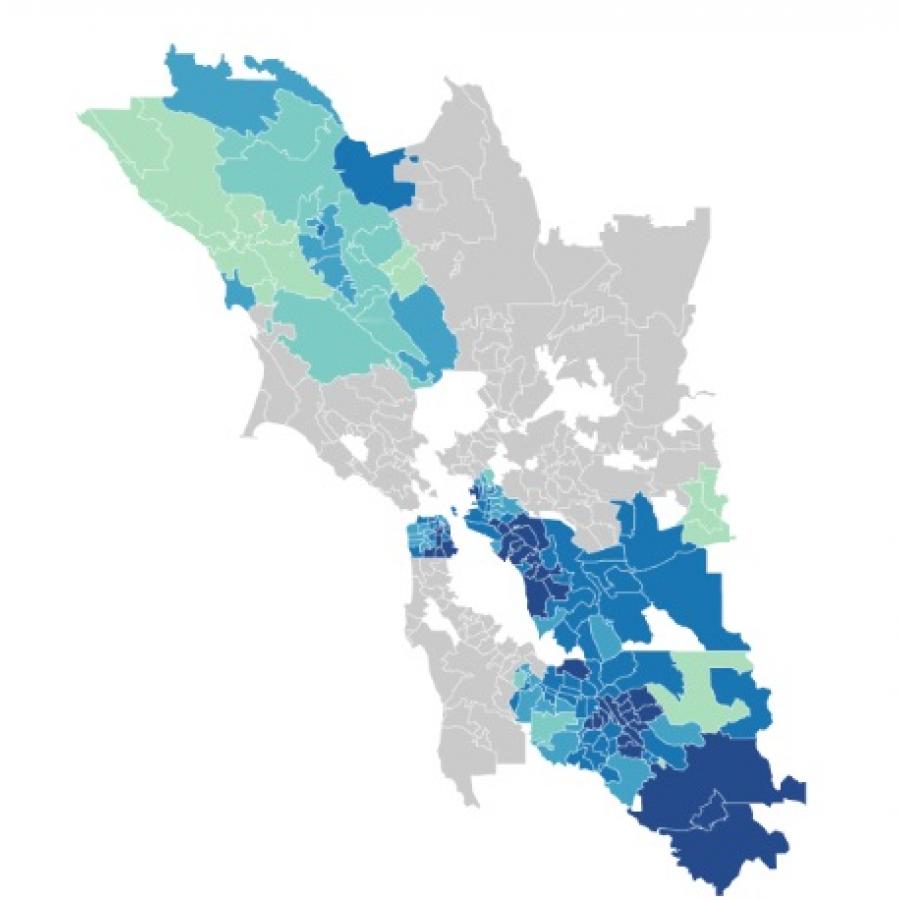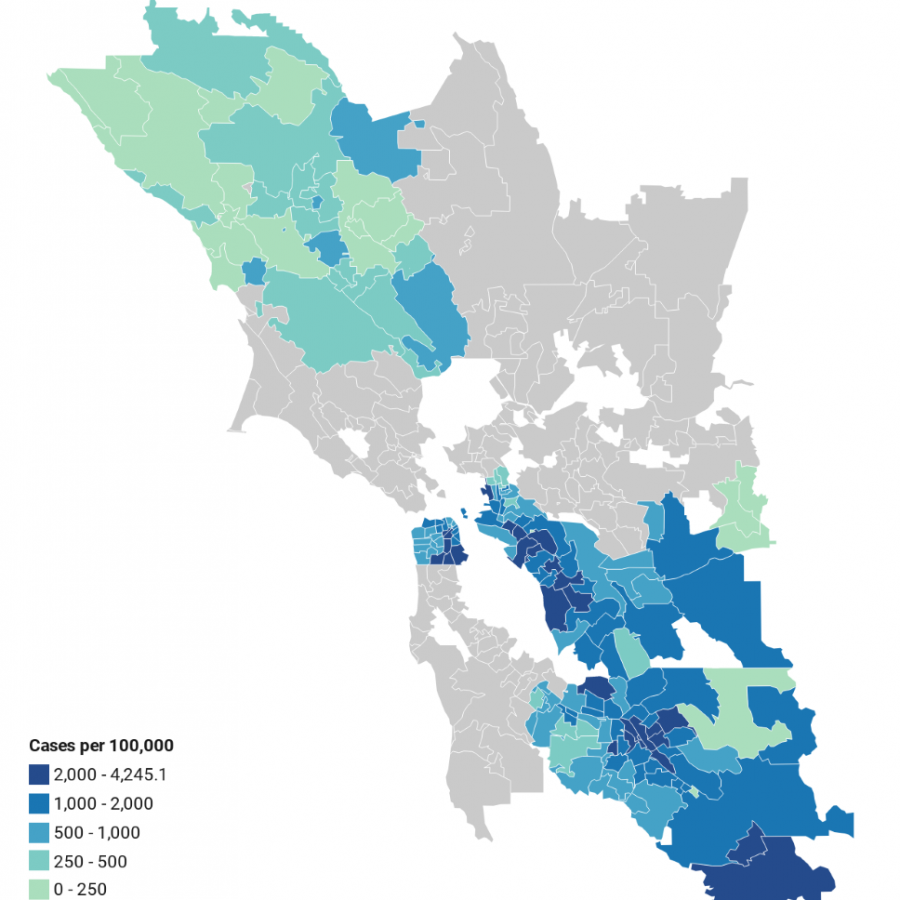New Analysis Reveals Massive Renter Debt in California
March 25, 2021
Dear Atlas users,
The Atlas team stands in solidarity with the Asian and Pacific Islander (API) community in this moment of heightened discrimination, hatred, and violence. As we reckon with our nation’s long history of racism and xenophobia, disaggregated data is crucial for advancing racial equity and justice. Here are a few updates:
Ancestry Matters: Racial Subgroup Data in the National Equity Atlas
Asian and Pacific Islander activists and organizations have warned about the ‘model minority’ myth for decades. While the API population as a whole often fares above average on socioeconomic indicators, such metrics render invisible subgroup populations within the API community who face barriers to economic opportunities and inclusion. To illustrate the diversity of experiences and outcomes within broad racial/ethnic groups, the Atlas includes subgroup data for several of our economic opportunity and connectedness indicators, including median wage, unemployment, the percentage of workers making $15/hour, disconnected youth, homeownership, and educational attainment. To view this data, navigate to your indicator of choice and then select “by ancestry” from the Breakdown menu.
New Data Shows that 1 in 7 California Renter Households Are Behind on Rent
In partnership with Housing Now!, the Atlas team released an updated fact sheet analyzing rent debt in California (also available in Spanish), as well as a rent debt fact sheet for the Bay Area. We found that over 814,000 households were behind on rent in January, or 14 percent of all renter households. Renters owe an estimated $2.4 billion in back rent (an average of $2,900 per household). Eliminating rent debt is critical to equitable recovery: the vast majority of renters with debt are low-income, Covid-impacted renters of color. The new data was featured during #TenantTuesday to raise awareness about California’s rent forgiveness program, which will provide crucial relief.
You’re invited: Using Disaggregated Data to Advance Workforce Equity
You’re invited to join the National Equity Atlas team and our partners at the National Fund for Workforce Solutions for a three-part webinar series on using disaggregated data to develop high-impact workforce strategies for racial equity. Through our Advancing Workforce Equity project, we spent two years working closely with local leaders to analyze tailored workforce data, identify the key drivers of inequity, and prioritize actionable strategies to advance equity through policy, programs, and investments. In this webinar series we’ll share the tools and approaches that guided this research, along with lessons from the field.
- Part 1: Accessing and Exploring Relevant Data from the National Equity Atlas
April 14, 11 am – 12 pm PT / 2 pm – 3 pm ET
This session will focus on using the National Equity Atlas to access and understand deeply disaggregated data for your city, region, or state. Register here. - Part 2: Analyzing Systemic Drivers of Inequity
April 21, 11 am – 12 pm PT / 2 pm – 3 pm ET
The second session will equip attendees with strategies to analyze disaggregated data and identify the root causes of inequitable workforce outcomes. Register here. - Part 3: Developing High-Impact Workforce Equity Strategies
April 28, 11 am – 12 pm PT / 2 pm – 3 pm ET
Finally, the third session of this webinar series will feature lessons and tools developed through our work with local leaders in the Advancing Workforce Equity project. Register here.
In the News
This month, news outlets including Yahoo Finance and the Washington Post covered our indicators, while The Guardian, The Mercury News, and The Press Democrat covered our analysis of renter debt in California. Find a complete list of media coverage here.
And don’t miss “Putting People First: Reimagining OUR Economy,” a recent episode of the Radical Imagination podcast featuring Manuel Pastor and Saru Jayaraman on the fight for one fair wage and a solidarity economy. PolicyLink and its partners at Unfinished invite you to reflect and respond to the question, "What does an economy that puts people first look like?" Submit your responses at RadicalImagination.us, or on social media using #RadicalImagination and #ThisIsUnfinished
- The National Equity Atlas team at PolicyLink and the USC Equity Research Institute (ERI)

